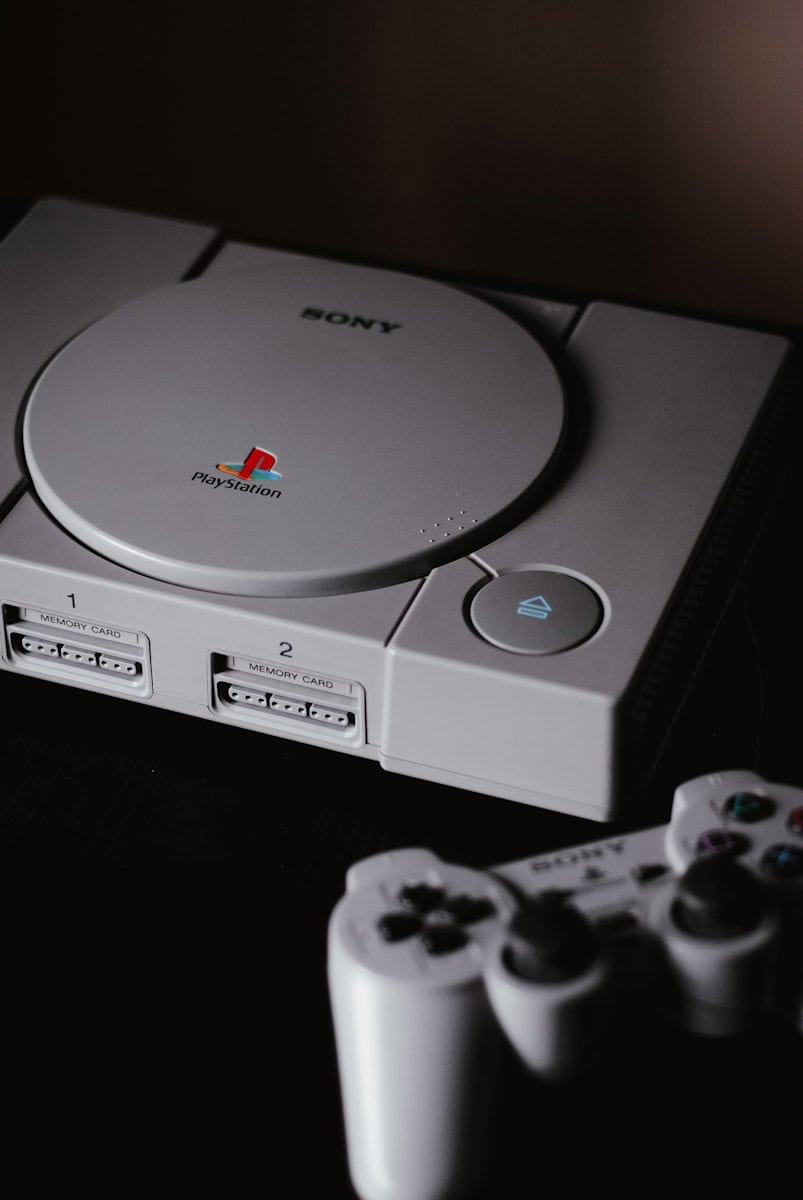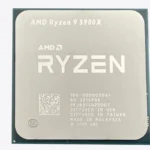The PlayStation 1 (PS1) marked the start of Sony’s gaming legacy. It came out in the mid-1990s and quickly won the hearts of gamers everywhere. The console had hundreds of games spanning many types – from action to role-playing to racing.
The best PS1 games are those that not only defined gaming during their time but continue to influence modern titles today. Many iconic franchises like Final Fantasy, Metal Gear Solid, and Crash Bandicoot got their start or found major success on this gray box. Some of these games have stood the test of time with gameplay that still feels fresh even by today’s standards.
Best PS1 Games of All Time
The original PlayStation (PS1), released in 1994, reshaped gaming with its 3D graphics, cinematic storytelling, and massive library of titles. Even decades later, many PS1 games remain essential experiences. Below is a guide to the greatest PS1 games of all time, organized by genre.
🗡️ Action & Adventure
Metal Gear Solid (1998)
- Defined cinematic storytelling in games.
- Stealth gameplay, voice acting, and narrative twists set new standards.
- Still regarded as one of the most influential titles ever made.
Castlevania: Symphony of the Night (1997)
- Revolutionized the Metroidvania genre.
- Nonlinear exploration, RPG elements, and atmospheric music.
- A cult classic that continues to inspire modern indie games.
⚔️ Role-Playing Games (RPGs)
Final Fantasy VII (1997)
- The game that brought JRPGs to the mainstream worldwide.
- Epic story, unforgettable characters (Cloud, Sephiroth, Aerith), and groundbreaking cutscenes.
- Its legacy lives on with remakes and spin-offs.
Final Fantasy IX (2000)
- A love letter to classic fantasy storytelling.
- Charming art style, deep mechanics, and emotional narrative.
- Often regarded as the “hidden gem” of the series.
Chrono Cross (1999)
- Spiritual successor to Chrono Trigger.
- Known for its branching storylines, multiple endings, and incredible soundtrack.
🏎️ Racing
Gran Turismo 2 (1999)
- Set the standard for realistic racing simulations.
- Massive car roster and tracks, with deep customization.
- A must-play for car enthusiasts.
Crash Team Racing (1999)
- Sony’s answer to Mario Kart.
- Tight controls, fun tracks, and competitive multiplayer.
- Still beloved as one of the best kart racers ever.
👊 Fighting
Tekken 3 (1997)
- Widely considered one of the best fighting games of all time.
- Introduced smoother 3D combat and iconic fighters like Jin and Hwoarang.
- A staple of competitive fighting communities.
Soul Blade (1996)
- Predecessor to the SoulCalibur series.
- Weapon-based combat and cinematic flair made it stand out.
👻 Horror & Survival
Resident Evil (1996)
- The game that popularized survival horror.
- Iconic mansion setting, resource management, and tense atmosphere.
- Spawned one of gaming’s biggest franchises.
Silent Hill (1999)
- Psychological horror masterpiece.
- Foggy environments, haunting music, and disturbing storylines.
- Influenced countless horror games that followed.
🐉 Platformers
Crash Bandicoot (1996)
- PlayStation’s mascot in the 90s.
- Tight platforming, colorful worlds, and plenty of challenge.
- Helped define the PS1 era.
Spyro the Dragon (1998)
- Open-world style platforming with exploration focus.
- Bright visuals, smooth controls, and lovable characters.
- A cornerstone of PS1’s family-friendly library.
🏆 Legacy
The PS1’s library is massive, but these games stand out as timeless classics that shaped genres and influenced generations of developers. Whether you’re revisiting them through emulation, retro collections, or remakes, these titles remain essential for any gamer.
Top 10 Best PS1 Games of All Time
1. Final Fantasy VII (1997)
The game that defined the PS1 era. With its unforgettable story, cinematic cutscenes, and iconic characters, Final Fantasy VII brought JRPGs into the global spotlight.
2. Metal Gear Solid (1998)
A landmark in storytelling and stealth gameplay. Hideo Kojima’s masterpiece blended Hollywood-style presentation with innovative mechanics.
3. Castlevania: Symphony of the Night (1997)
The definitive Metroidvania experience. Nonlinear exploration, RPG progression, and a haunting soundtrack cemented it as a timeless classic.
4. Resident Evil (1996)
The birth of survival horror. Its eerie mansion setting and tense gameplay laid the foundation for an entire genre.
5. Tekken 3 (1997)
A fighting game revolution. Smooth mechanics, a diverse cast, and addictive multiplayer made it the PS1’s premier fighter.
6. Silent Hill (1999)
Psychological horror at its finest. Fog-drenched streets, unsettling atmosphere, and disturbing storytelling set it apart from Resident Evil.
7. Gran Turismo 2 (1999)
The ultimate racing simulator of its time. Hundreds of cars, realistic handling, and deep customization made it a must-play for gearheads.
8. Crash Bandicoot (1996)
PlayStation’s platforming mascot. Tight controls, challenging levels, and colorful charm made Crash a household name.
9. Spyro the Dragon (1998)
A bright, whimsical platformer with open-world exploration. Spyro’s smooth controls and vibrant worlds made it a fan favorite.
10. Chrono Cross (1999)
A bold and ambitious RPG. With branching storylines, multiple endings, and a legendary soundtrack, it remains one of the most unique games on the PS1.
✅ Quick Takeaway:
The PS1 library is massive, but these 10 games stand as the crown jewels—games that not only defined the console but also shaped gaming history.
1. Metal Gear Solid
Metal Gear Solid stands as one of the most influential titles in gaming history. Released for the PlayStation in 1998, this stealth-action game changed how stories could be told in video games.
The game follows Solid Snake, a special forces operative sent to infiltrate a nuclear weapons facility captured by terrorists. What starts as a simple mission turns into a complex tale of betrayal, genetics, and nuclear threat.
Director Hideo Kojima created something truly special with this title. The game blended cinematic cutscenes with innovative gameplay that required players to think rather than shoot their way through problems.
Many gamers consider Metal Gear Solid the greatest game of all time due to its perfect mix of stealth mechanics and storytelling. Its fourth-wall-breaking moments, like Psycho Mantis “reading your mind” by accessing your memory card data, still impress today.
The game features an unforgettable cast of characters with unique personalities and motivations. From the conflicted Meryl Silverburgh to the tragic Sniper Wolf, each character adds depth to the narrative.
Metal Gear Solid pushed the PS1 hardware to its limits. The voice acting, directed by Kris Zimmerman, set new standards for game performances, with David Hayter’s gravelly Snake becoming iconic.
The boss battles remain some of gaming’s most creative encounters. Each requires unique strategies rather than brute force, from the sniper duel with Wolf to the fistfight atop Metal Gear REX.
First-time players today are still amazed by the experience, despite the dated graphics. The game’s attention to detail is remarkable, from guards who investigate noises to Snake’s footprints in snow.
Metal Gear Solid’s legacy extends beyond its immediate success. It spawned a beloved franchise and helped establish video games as a medium capable of sophisticated storytelling on par with films.
2. Final Fantasy VII
Final Fantasy VII stands as a defining game in PlayStation history. This role-playing masterpiece from Square (now Square Enix) changed gaming forever when it launched in 1997. Its 3D graphics and cinematic approach were revolutionary for the time.
The game follows Cloud Strife, a mercenary drawn into a battle against the evil Shinra Corporation. His journey with eco-terrorist group AVALANCHE evolves into an epic quest to save the planet from destruction. The villain Sephiroth remains one of gaming’s most iconic antagonists.
What makes FF7 special is its amazing pacing and momentum. The game balances story and gameplay perfectly, keeping players engaged throughout its lengthy adventure. It shows more than it tells, letting players experience its world firsthand.
The Materia system offered incredible customization options. Players could mix and match magical abilities to create unique character builds, adding tremendous depth to combat. The game’s summons and limit breaks provided spectacular visual rewards for strategic play.
FF7’s pre-rendered backgrounds created beautiful, atmospheric environments that still impress today. Despite the blocky character models, the artistic vision shines through in every location from Midgar’s industrial sprawl to the serene Ancient Forest.
Perhaps most surprising is how well the game holds up decades later. New players continue to discover what made this title so special, with its timeless themes of identity, environmentalism, and corporate greed remaining relevant.
Final Fantasy VII consistently ranks among the best PS1 games of all time on most gaming lists. For many players during the late 90s, it was their favorite game ever, even above other acclaimed titles in the series.
3. Castlevania: Symphony of the Night
Castlevania: Symphony of the Night stands as one of the most influential games on the PlayStation. Released in 1997, this game transformed the Castlevania series from a linear action platformer into what would later be called a “Metroidvania” – a term partly named after this very title.
The game puts players in control of Alucard, the son of Dracula, as he explores a massive, interconnected castle. Unlike earlier Castlevania games, Symphony of the Night features RPG elements, including experience points, equipment, and stats that change as you progress.
What makes this title special is its perfect blend of exploration, combat, and progression. The castle design remains a masterclass in gameplay design, offering players countless secrets to discover and abilities to unlock.
The visuals hold up remarkably well today. The game uses 2D sprites and backgrounds with a gothic art style that creates a haunting atmosphere few games have matched since. Coupled with an outstanding soundtrack composed by Michiru Yamane, the presentation remains timeless.
Symphony of the Night consistently ranks high on best PlayStation games lists. IGN places it at number 3 in their top 25 PS1 games, behind only Metal Gear Solid and Final Fantasy 7. For many fans, it’s their number 1 PlayStation game, even beating out those giants.
The game’s influence extends beyond its own series. It helped popularize RPG elements in action games and showed how exploration could be rewarding in its own right. Many modern games still draw inspiration from its design philosophy.
Perhaps most impressive is how the game holds up to repeated playthroughs. Many players report that it never gets old no matter how many times they play it, a testament to its quality and depth.
4. Gran Turismo 2
Released in 1999, Gran Turismo 2 stands as one of the most impressive racing simulators on the PlayStation. This sequel expanded greatly on the original, doubling the car count to over 600 vehicles and featuring 27 tracks.
The game split into two discs – the Arcade Mode disc for quick races and the Simulation Mode disc where players could build their racing career. This structure gave players options for both casual play and deep engagement.
GT2 featured stunning graphics for its time. The car models looked realistic, and the tracks captured the essence of real-world racing environments. Racing at night or in changing weather conditions added to the challenge.
The physics engine made each car feel unique. Players noticed differences in handling between front-wheel, rear-wheel, and all-wheel drive vehicles. This attention to detail is why many still consider Gran Turismo 2 one of the best PS1 games ever made.
The game’s soundtrack deserves mention too. It featured an eclectic mix of rock, electronic, and jazz that perfectly complemented the racing experience. Many fans still remember the music fondly.
License tests returned from the original game but with more variety. These challenging skill tests taught players driving fundamentals and unlocked new racing opportunities.
The car modification system allowed players to tune everything from engine power to suspension settings. This feature gave the game tremendous depth as players could spend hours perfecting their vehicles.
GT2 wasn’t perfect – it had some loading time issues and occasional graphical glitches. Yet these minor flaws didn’t diminish its impact on racing games.
For many PlayStation owners, Gran Turismo 2 represented their first experience with a serious racing simulator. Its blend of accessibility and depth created a formula that racing games still follow today.
5. Resident Evil 2
Resident Evil 2 stands as one of the most beloved horror games ever made for the PlayStation 1. Released after the success of the original game, it improved upon its predecessor in nearly every way.
The game’s innovative A/B scenario system let players experience different storylines depending on which character they chose first. This design choice made the differing story lines feel fresh and exciting.
Leon Kennedy and Claire Redfield’s desperate fight through Raccoon City created an unforgettable zombie experience. The Raccoon City Police Department, with its amazing lobby music, became an iconic gaming location that players still remember today.
The game balanced horror, action, and puzzle-solving perfectly. Tank controls might seem clunky now, but they added to the tension as players navigated tight corridors filled with the undead.
Despite receiving a firecracker of a remake in 2018, many fans still consider the original PS1 version special. The game’s pre-rendered backgrounds and fixed camera angles created a cinematic experience that heightened the scares.
Resident Evil 2 introduced players to memorable villains like William Birkin and the unstoppable Mr. X. These enemies elevated the horror beyond simple zombie encounters.
The game consistently ranks among the 25 best PS1 games of all time on most gaming lists. For many players, it remains one of the best games ever made.
Some gamers even debate whether Resident Evil 2 might be the best PS1 game, putting it alongside classics like Metal Gear Solid. Its influence on survival horror games continues to this day.
6. Tekken 3
Tekken 3 stands as one of the most influential fighting games ever released on the PlayStation 1. Launched in 1998 by Namco, this third installment in the King of Iron Fist Tournament series brought significant improvements over its predecessors.
The game introduced a more refined fighting system that players found logical and coherent. Characters moved more fluidly than before, and the combat felt responsive in ways that set new standards for the genre.
Tekken 3 expanded its roster with memorable new fighters like Jin Kazama, Ling Xiaoyu, and Hwoarang. It also featured unique characters such as Gon, the tiny dinosaur, who added variety to the fighting styles available.
Beyond standard arcade mode, Tekken 3 offered the Tekken Force mini-game and Tekken Ball mode. These additions gave players more ways to enjoy the game beyond traditional one-on-one matches.
Graphically, Tekken 3 pushed the PS1 hardware to impressive heights. Character models showed remarkable detail for the era, with smooth animations that made fights look and feel more realistic than competitors.
The game’s popularity wasn’t just limited to hardcore fighting game fans. Its accessibility made it appealing to casual players too, allowing friends to pick up controllers and start enjoying matches without extensive practice.
Critics widely consider Tekken 3 the best in the PS1 series, with many ranking it among the highest-rated games of all time. It sits at the impressive position of 23rd highest-rated game ever made.
Despite its age and the release of many sequels, Tekken 3 remains trapped on the PS1 without proper ports to modern systems. This makes it a prized possession for collectors and fighting game enthusiasts with access to original hardware.
7. Crash Bandicoot: Warped
Crash Bandicoot: Warped stands as the crown jewel of the original Crash trilogy on PlayStation 1. Released in 1998 by Naughty Dog, this third installment took everything that worked in previous games and made it even better.
The game sends Crash and his sister Coco on a time-traveling adventure to collect crystals and stop the villainous Neo Cortex and Uka Uka. Players jump through ancient Egypt, medieval times, and even futuristic settings in some of the most varied environments in the series.
What makes Warped special is its expanded gameplay. Beyond the traditional platforming, players get to ride jet skis, pilot planes, and even race on a tiger named Pura. These varied game styles kept things fresh without losing the core Crash experience.
Many fans consider Warped their favorite platformer of all time. The game strikes a nice balance between challenge and fun, making it more accessible than the notably difficult second game.
The addition of special abilities changed up the formula too. Players could unlock new moves like the Super Body Slam and Fruit Bazooka by defeating bosses, adding depth to the gameplay.
Visually, Warped pushed the PS1 hardware with colorful environments and smooth character animations. The time period themes allowed the developers to create distinct worlds with their own unique challenges and enemies.
While some purists argue that Crash Bandicoot 2 has more rewarding challenges, Warped offers the most complete package. Its mix of traditional platforming with vehicle sections and boss fights created a more diverse gaming experience.
As the final game in Naughty Dog’s original trilogy, Warped represents the peak of 90s platforming on PlayStation. Its influence can still be felt in modern platformers, cementing its place among the greatest PS1 games ever made.
8. Spyro the Dragon
Spyro the Dragon burst onto the PlayStation scene in 1998, introducing players to a plucky purple dragon with attitude. This 3D platformer charmed gamers with its colorful worlds and simple yet engaging gameplay.
The original Spyro game stands as a PlayStation classic that has earned its place among the best PS1 games of all time. Players control Spyro as he breathes fire, charges enemies, and glides across various fantasy realms to rescue his fellow dragons.
What made Spyro special was its sense of freedom. The game offered wide-open levels that encouraged exploration rather than linear paths. Each world felt distinct and alive with personality.
The music by Stewart Copeland (former drummer of The Police) created a unique soundtrack that enhanced the game’s whimsical atmosphere. Those tunes stick with players long after they’ve turned off their consoles.
While later entries in the series added more mechanics, many fans still have a soft spot for the original. Some players even consider it their favorite despite acknowledging that Spyro 2 might be objectively better. The first game’s simplicity is part of its charm.
Insomniac Games created something special with Spyro. The character’s design was instantly recognizable, and his attitude set him apart from other mascot characters of the era.
The game’s legacy continues today. In 2018, Spyro Reignited Trilogy brought the original PlayStation classics to modern consoles with updated graphics while preserving the heart of what made these games special.
For many players who grew up in the late ’90s, Spyro represents pure gaming joy and deserves recognition as one of the defining experiences of the PlayStation era.
9. Tony Hawk’s Pro Skater 2
Tony Hawk’s Pro Skater 2 stands as one of the most influential PlayStation games ever made. Released in 2000, this skateboarding masterpiece expanded on its predecessor with improved mechanics and a wealth of new content.
The game added manual moves, which let players link tricks together for massive combos. This simple addition transformed the gameplay, creating a deeper scoring system that rewarded skill and creativity.
Players could choose from a roster of pro skaters including Tony Hawk himself, Bob Burnquist, and Kareem Campbell. Each skater had unique attributes and special moves that suited different play styles.
The level design deserves special mention. From the school grounds to the airplane hangar, each map packed secret areas and challenging objectives. The two-minute timer created a perfect balance of pressure and freedom.
A create-a-skater feature let players design their own characters. The park editor also allowed fans to build custom skateparks, adding huge replay value to an already packed game.
The soundtrack featured iconic tracks from Bad Religion, Rage Against the Machine, and Naughty by Nature. These songs became synonymous with skateboarding culture for a generation of gamers.
According to Metacritic ratings, Tony Hawk’s Pro Skater 2 ranks as the #1 PlayStation game of all time. Its perfect blend of accessibility and depth appealed to both casual players and hardcore gamers.
The career mode progression felt rewarding, with money earned from completing objectives used to upgrade stats and unlock new equipment. This system kept players motivated to improve their skills.
Tony Hawk’s Pro Skater 2 wasn’t just a great game—it helped popularize skateboarding culture to a wider audience. Many fans picked up real skateboards after playing, showing its cultural impact beyond gaming.
Its controls remain the gold standard for skateboarding games. The intuitive button layout made complex tricks accessible without sacrificing depth, a balance few games have matched since.
10. Chrono Cross
Chrono Cross stands as one of the most unique RPGs in the PlayStation library. Released in 2000, this game took a different approach from its predecessor Chrono Trigger, while still maintaining connections to its timeline.
The game features a complex story with parallel worlds and over 40 playable characters. Players take on the role of Serge, a young man who slips between dimensions and discovers he’s dead in an alternate world.
What makes Chrono Cross special is its beautiful art direction and memorable soundtrack by Yasunori Mitsuda. The music perfectly captures the tropical island setting of El Nido, creating a distinct atmosphere rarely matched in other PS1 titles.
The battle system breaks from traditional turn-based RPG formulas. It uses a unique element grid system where characters can perform regular attacks to build up points, then spend those points on powerful element attacks.
Many consider Chrono Cross among the best PS1 games ever made. It’s often praised for its ambitious storytelling and willingness to take risks. The game doesn’t simply follow the path of Chrono Trigger but creates its own identity.
Some players rank it as one of the top five PlayStation games of all time. The game’s philosophical themes about identity, fate, and environmental impact give it depth beyond typical RPG adventures.
Critics particularly praise how Chrono Cross empowers players through its innovative gameplay systems. The multiple endings and branching pathways allow for different experiences on repeated playthroughs.
While some fans debate whether it lives up to Chrono Trigger’s legacy, Chrono Cross stands on its own merits as a PlayStation classic. Its blend of gorgeous visuals, unforgettable music, and complex storytelling make it essential for any PS1 collection.
The Evolution of Gaming
The PlayStation revolutionized the gaming industry in the mid-1990s, introducing 3D gaming to the masses and changing how games were made and played. It created new possibilities for storytelling and gameplay.
The Rise of the PlayStation
Sony entered the gaming scene in 1994 with the PlayStation, challenging established giants Nintendo and Sega. The PS1’s CD-ROM format allowed for larger games with better graphics, full-motion video, and CD-quality audio.
The console sold over 100 million units worldwide, making it the first home console to reach this milestone. This success wasn’t just about hardware—it was about games.
Popular titles like Final Fantasy 7 and Metal Gear Solid showcased what the system could do. These games weren’t just fun; they were technical achievements.
The PlayStation’s controller introduced the now-standard dual analog stick design, changing how players interacted with 3D environments.
The Impact of PS1 on Gaming Culture
The PlayStation transformed gaming from a kid-focused hobby into mainstream entertainment. Suddenly, it was cool for adults to play video games too.
Games like Tony Hawk Pro Skater and Twisted Metal 2 became cultural touchstones. They weren’t just games—they influenced music, fashion, and even slang.
The PS1 era introduced genres that still dominate today. RPGs flourished with titles like Final Fantasy and Suikoden 2 bringing complex stories to gaming.
Gaming magazines and early internet forums buzzed with PlayStation news and tips. Memory cards became prized possessions, and swapping games with friends was a social ritual.
Many of today’s game developers grew up with PS1 games that inspired their careers. The PlayStation’s influence is still seen in modern game design.
Understanding Game Genres
The PlayStation 1 offered a diverse library that defined several major gaming genres. Different types of games provided unique experiences, from epic storylines to heart-pounding action.
Role-Playing Games (RPGs) on PS1
The PS1 era revolutionized RPGs with groundbreaking titles that still influence games today. Final Fantasy VII and VIII stand as pillars of the genre, introducing millions of players to complex narratives and turn-based combat systems.
Square’s dominance extended beyond Final Fantasy with classics like Chrono Cross and Xenogears. These games featured innovative battle mechanics and branching storylines that kept players engaged for 40+ hours.
Western RPGs also found a home on PS1. Titles like Diablo offered hack-and-slash action with deep character customization. Meanwhile, Suikoden II became famous for its political storylines and 108 recruitable characters.
Most PS1 RPGs shared common elements:
- Turn-based combat
- Character progression systems
- Story-driven experiences
- Explorable worlds
Action and Adventure Classics
The PS1 transformed action gaming with titles that perfectly balanced combat and exploration. Metal Gear Solid introduced stealth mechanics that changed gaming forever, while Resident Evil defined survival horror.
Platformers thrived during this era too. Crash Bandicoot and Spyro 2 delivered colorful adventures with tight controls and varied gameplay. These mascot characters became synonymous with PlayStation itself.
Combat-focused games like Tekken 3 showcased the PS1’s 3D capabilities. Fighting games benefited from the console’s CD format, allowing for more characters and higher-quality visuals than previous generations.
The PS1’s action catalog includes:
- Combat-heavy: Syphon Filter, Medal of Honor
- Platformers: Ape Escape, Crash Bandicoot
- Horror: Silent Hill, Resident Evil
- Stealth: Metal Gear Solid
Technical Innovations
The PlayStation 1 brought revolutionary advancements to gaming through its technological capabilities. Games pushed hardware limits in surprising ways, creating experiences that still impress today.
Graphics and Sound Advancements
The PS1 era saw developers pushing the console’s 3D capabilities to new heights. Metal Gear Solid stands as a prime example, using detailed textures and cinematic camera angles to create an immersive stealth experience despite hardware limitations.
Final Fantasy IX showcased impressive pre-rendered backgrounds paired with detailed character models, creating visually stunning environments that felt alive. The game’s artistic direction helped overcome polygon limitations.
Gran Turismo 2 broke new ground with its realistic car models and tracks. The racing simulator achieved visual fidelity that seemed impossible on the hardware.
Sound design also evolved dramatically. Games like Soul Reaver featured advanced audio that enhanced atmosphere through positional sound effects and voice acting, adding depth to gaming experiences.
Game Mechanics and Controls
PS1 developers created innovative gameplay systems that changed gaming forever. Resident Evil 3’s Nemesis AI presented players with an unpredictable threat that could appear anywhere, creating tension through clever programming rather than raw processing power.
The DualShock controller introduced analog sticks and vibration feedback, allowing games like Ape Escape to pioneer 3D platforming controls that felt natural and responsive.
Metal Gear Solid revolutionized stealth gameplay with guard AI that responded to sound, footprints, and player visibility. These systems created dynamic encounters that felt ahead of their time.
Memory card save systems enabled longer, more complex adventures than previous console generations could support. RPGs like Legend of Dragoon took advantage with lengthy campaigns full of detailed worlds and complex battle systems.
Frequently Asked Questions
The PlayStation 1 created a gaming revolution with titles that continue to influence developers today. Many classics remain playable through modern emulation or remasters.
Which titles are considered the top 10 greatest PS1 games?
Most gaming historians consistently rank Metal Gear Solid at the top of PS1 games for its revolutionary stealth gameplay and cinematic storytelling. This groundbreaking title changed how games tell stories.
Final Fantasy VII typically ranks second, with its emotional narrative and iconic characters like Cloud and Sephiroth leaving a lasting impact on gaming culture. The game sold millions of copies worldwide.
Castlevania: Symphony of the Night, with its non-linear exploration and RPG elements, transformed its series and helped create the “Metroidvania” genre. Its pixel art still impresses today.
Other titles commonly in top 10 lists include Gran Turismo 2, Resident Evil 2, Tekken 3, Final Fantasy Tactics, Crash Bandicoot, Silent Hill, and Tomb Raider.
What are some highly-rated but less known PS1 games?
Valkyrie Profile stands as an underappreciated RPG gem with unique combat systems and Norse mythology themes. The game has since received a PSP remake that improved its visuals.
Parasite Eve blended RPG elements with survival horror, creating a unique science fiction experience that wasn’t as widely played as Square’s Final Fantasy series.
Vagrant Story delivered complex combat mechanics and an intricate storyline that many gamers missed. Its dark fantasy setting and unique art style still hold up remarkably well.
Bushido Blade offered a realistic take on fighting games where a single hit could end a match. This different approach to combat never gained mainstream popularity.
What PS1 games have the best emulation performance?
2D games like Castlevania: Symphony of the Night typically run perfectly on most emulators due to their simpler graphics requirements. These games often look better than ever with modern scaling options.
Racing games like Gran Turismo run well on mid-range systems, though some graphical effects might require more powerful hardware for perfect emulation.
Simple 3D platformers like Crash Bandicoot emulate smoothly on most systems. Their straightforward design translates well to modern hardware.
Games with extensive FMV sequences like Final Fantasy VII may require more storage space but generally run without issues on modern emulators.
Can you list iconic PS1 games that shaped the platform?
Metal Gear Solid revolutionized stealth gameplay and cinematic storytelling in games. Its fourth-wall-breaking moments like the Psycho Mantis fight remain legendary.
Final Fantasy VII brought JRPGs to mainstream Western audiences with its memorable characters and emotional story beats.
Resident Evil established survival horror as a major genre, with limited resources and fixed camera angles creating unprecedented tension.
Gran Turismo created the “real driving simulator” category that focused on authentic physics and licensed cars. Its influence extends to modern racing games.
Tomb Raider introduced Lara Croft as gaming’s first major female protagonist in a 3D action-adventure setting.
Which PS1 games were the most commercially successful?
Gran Turismo topped the PlayStation sales charts with over 10.85 million copies sold worldwide. Its realistic driving experience appealed to both casual and hardcore gamers.
Final Fantasy VII sold approximately 10 million copies globally, making it the most commercially successful JRPG of its era. The game’s success cemented Square’s reputation.
Crash Bandicoot became PlayStation’s unofficial mascot, with the original trilogy selling millions of copies. The character helped Sony compete against Nintendo’s Mario.
Tekken 3 moved over 8 million units, becoming the best-selling fighting game on the platform. Its 3D fighting mechanics set new standards for the genre.
Resident Evil 2 sold over 4.96 million copies, proving horror games could achieve mainstream commercial success. Its popularity led to multiple sequels and remakes.
What are some family-friendly games available on the PS1?
Crash Bandicoot offers colorful platforming challenges suitable for all ages. Its cartoon violence and humor appeal to children while providing enough challenge for adults.
Spyro the Dragon features an adorable purple dragon in open 3D worlds with simple controls kids can easily master. The game avoids frustrating difficulty spikes.
Ape Escape uses the dual analog controller in innovative ways that children find intuitive. Its monkey-catching premise creates harmless fun.
Rayman delivers artistic 2D platforming with no objectionable content. The lack of violence makes it particularly suitable for younger players.
PaRappa the Rapper introduced rhythm gaming to many families with its cartoon style and catchy songs. Its simple “follow along” gameplay works for players of all skill levels.







